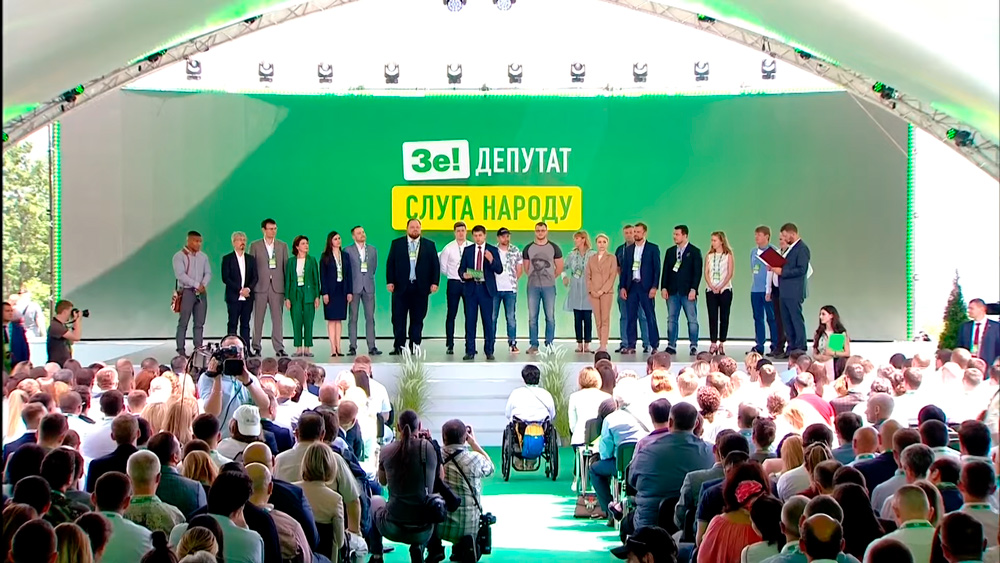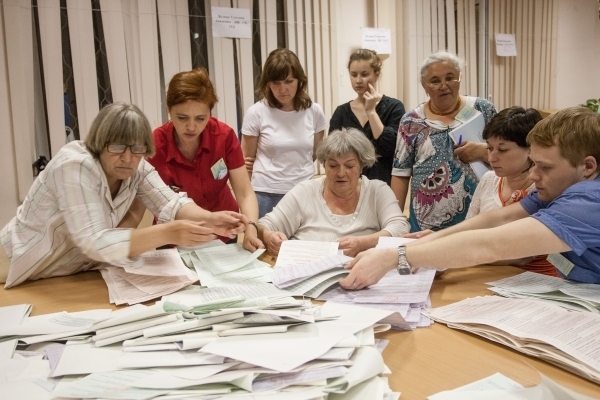On Wednesday, 22 May, the first legislative initiative of the newly elected president Volodymyr Zelenskyy failed in the Verkhovna Rada (Parliament). It concerned changes in the election system. The MPs did not vote to include the corresponding bills in the agenda.
The bill was submitted to the parliament just minutes before the beginning of the session on Wednesday. When the text appeared on the parliament’s website, it still had to be printed out to be given to the MPs to read as, according to the Parliament's speaker Andriy Parubiy, it is abnormal to vote for a bill the MPs haven't even seen.
Reforming the electoral system has been a demand of society for five years after the Euromaidan Revolution, which led to the change of power in Ukraine in 2014. However, the bill suggested by Zelenskyy missed many of the demands of society. Instead of a proportional system with open party lists it suggested the opposite - closed party lists. The former foresees that voters chose parties and within it particular candidates from the party lists. The latter, suggested by the new President, envisaged that it was up to the parties to decide who in particular would enter parliament.
The main complaint about the current mixed system is its loyalty to corruption. According to it, one half of the Parliament is elected following the proportional system, when voters choose political parties. Another half is elected following the majoritarian system, when voters choose independent candidates running in particular constituencies. This second part creates lots of opportunities for bribing voters.
Announcements that the current voting system could be changed a closed-party-lists-only one were immediately criticized by civil society organizations.
“A proportional system with closed lists has the lowest rating of support from society and is no less corrupt than the majoritarian one. In the majoritarian system, corruption is less elitist,” wrote Olga Aivazovska, the head of OPORA, a key election watchdog NGO.
The discussion moved on to the Parliament, where a number of MPs took a stand against the closed lists.
In the end, only 92 MPs out of the needed 226 voted to include it in the agenda. The speaker closed the meeting. Another dramatic change to the failed bill was to reduce the threshold for parties to enter Parliament from 5% to 3%. One more bill which did not make it to the agenda on Wednesday was the one related to public procurement during elections.
After, Ruslan Stefanchuk, Zelenskyy's advisor and representative in the Verkhovna Rada, said that the MPs failed the agreements with the president. He also told journalists that Zelenskyy made an attempt to “pull Ukraine out of the majoritarian approach.” He also admitted that the decision to suggest the closed lists was not good, however under the given circumstances it would be technically difficult to implement open list option in time.
“The early elections probably will take place according to the law which is in force: half of the Parliament will be elected from party lists, another half via the majoritarian system,” commented Ruslan Ryaboshapka, deputy head of the Presidential Administration, still accepting a slight possibility that the MPs will include the bill by the end of Wednesday.
During all the five years since Euromaidan, civil society had advocated to change the system for a proportional one with open party lists. It would allow to avoid a situation when it is only up to parties to decide which particular politician will represent them in the Parliament - which led to instances of seats of MPs being up for sale.
But this request from society was ignored - until a breakthrough in 2017, when amid a long-term protest near the building of the Parliament called “The Big Political Reform,” the MPs voted for the new Election Code in the first round.
But there the progress stopped. The Code did not make it to the second reading and gathered about 4,000 amendments.
According to Aivazovska, the amendments which have been considered during 43 meetings of the working group are still not put together.
Talks on changing the system were advocated at the end of 2018. But even then, it would have already been too late to adopt the new election legislation in time for the next elections.
According to international standards, election legislation should be changed no less than a year before the start of the election process.





